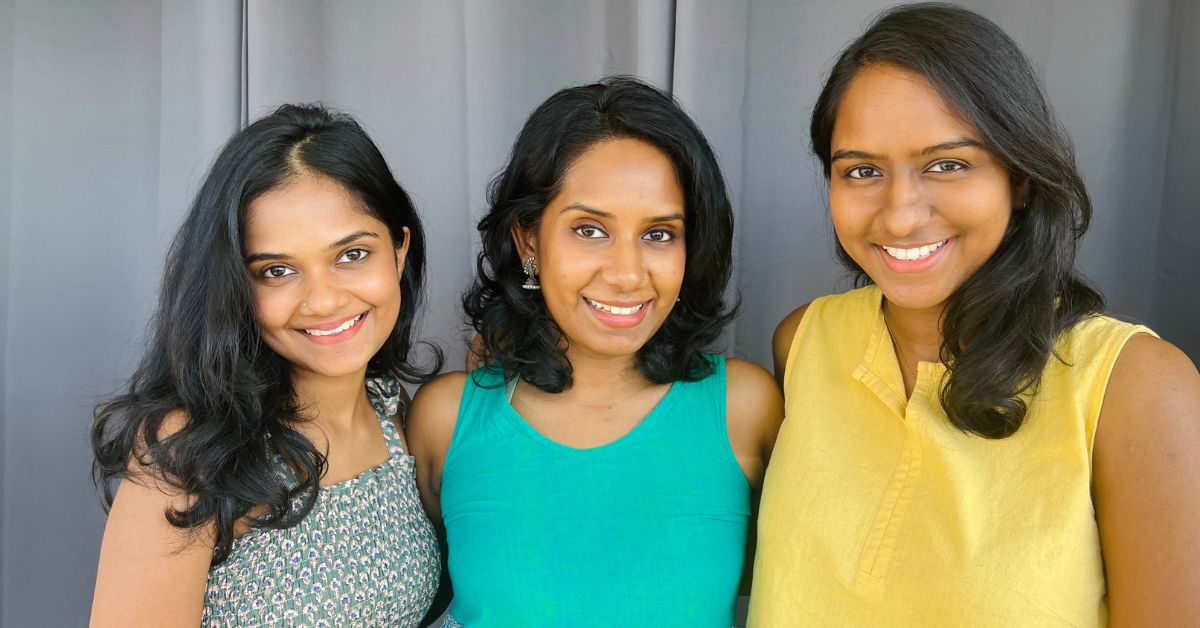I’ll admit that I’m not someone who takes into consideration the way my clothes are produced. Sustainability is far from the first thing on my mind when purchasing my clothes.
Not to mention, it is pretty common to find brands practising fast fashion to meet the demand in everchanging trends, including Shein, Mango, H&M, Forever 21, Urban Outfitters, Adidas, and many more.
With most of these brands being an easily accessible and slightly more affordable option, it’s safe to say that it’s hard to drive change.
But Banavees is a Malaysian clothing brand choosing to go the other way by focusing on sustainability and being environmentally conscious when producing its outfits.
Sustainable & fashionable
Praveena, who founded the brand, believes that people need to start shopping consciously and refrain from buying clothes just because they’re cheap and readily available.
“After being a part of this fashion field, I’ve realised that there’s so much work in producing a simple T-shirt. Since then, I’ve not bought a T-shirt outside,” shared Praveena.
Banavees’ outfits are made-to-order and customers are allowed to choose their own designs for their outfits, besides the original pieces showcased on its website.

Prices vary depending on the design, style, and the amount of fabric needed for each outfit. Currently, the prices for all pieces range from RM70-RM200.
The founder admitted that the initial idea of the brand started off as just a fashion business. She designed her outfits based on what she would wear on a daily basis.
Having pursued her undergraduate studies in India, Praveena became fond of Indian fabric and fashion.
“When I first started the business, I figured that there weren’t many options available for people looking for a modern twist in their outfits using Indian fabric,” explained Praveena.
Hence, with this in mind, Praveena and her sisters started off by selling their clothes in pop-up booths.
Over time, the founder conducted her own research and started learning about the industrial waste from fashion. According to her, fashion is the second largest waste-producing industry.
“I was slightly taken aback and wondered if what I was doing was actually right. So, I decided to take a break and reevaluate my strategies on how I could make a difference and not be a contributing factor to the fashion waste industry,” said Praveena.
After her comeback, the sisters decided to produce their outfits sustainably by using deadlock, recycled, or donated Indian costume fabrics.
The taboo of fashion
Fashion was always part of the plan for Praveena. “I’ve always wanted to design since I was young, but there was such a taboo revolving around fashion as it’s not something you can grow easily or even make an income out of it,” she expressed.

Hence, instead of pursuing professional training in fashion design, she decided to finish her education and become a speech-language pathologist, which she still is today.
“And while I was being a language pathologist, I just thought, why not pursue my passion at the same time?” added Praveena.
Taking the leap of faith, the language pathologist got back into designing. She initially started off by designing for herself and her loved ones.

Gradually, her kin prompted her to start her own clothing brand and she went on to launch Banavees in 2019 along with her sisters.
However, her parents were not that pleased with her choice to pursue design in fashion. “Because of that, I am still pursuing my career as a speech therapist,” said Praveena.
Persevering through the challenges
One of the biggest challenges that the team continues to tackle is the lack of awareness within the fashion industry.
“I feel that a majority of us are still unaware of the impact the fashion industry has on us. We tend to buy clothes that can only be worn once or twice, and then it ends up in landfills,” shared Praveena.
Additionally, she believes that it’s hard to gain traction for Banavees because people are always going for fast-fashion brands, rather than focusing on the sustainability aspect.
In her opinion, a lot of people are shopping that way, rather than shopping consciously. They don’t ask questions such as “Am I buying something that’s going to last me?” or “Can I pass it on?”, and so on.
“So, that’s where I feel that it affects us as a brand, because people are unaware of what they’re buying,” Praveena told Vulcan Post.
The founder further explained that customers are sometimes hesitant about whether they can trust the new brand entirely.
A prominent challenge would be Banavees dealing with customers’ comparison of the prices of a fast-fashion brand online and of Banavees’ brand.
“It does affect us a little bit that they’re unaware of how it is creating a new brand and how we don’t receive financial assistance from anyone,” explained Praveena.
Hence, if one of their final outfits does not sell, they incur losses on their end as they’re self-financing the startup.

“Because we’re not a known brand, we can’t even price it at the actual pricing that you normally get from factory-produced items,” said Praveena.
However, when customers do purchase outfits from the brand, Banavees usually receives repeated orders, which is a blessing in itself.
Towards the fashionable future
One of Banavees’ future plans includes opening an outlet for its brand. As of now, the team is working on upgrading its website for it to be more user-friendly.
Additionally, when Banavees launches its outlet, the team hopes to provide both ready-made and custom–made orders for customers.
“I feel Asians are not used to the concept of custom-made outfits because they’re so used to tailoring or altering their outfits if it doesn’t fit,” said Praveena.
Keeping all these in mind, Banavees aims to be the clothing brand that practices sustainability and one that pushes forth the made-to-order concept.
Featured Image Credit: Banavees









